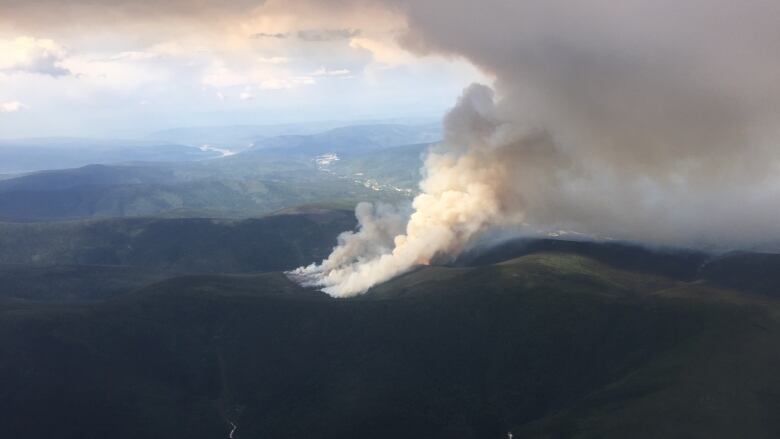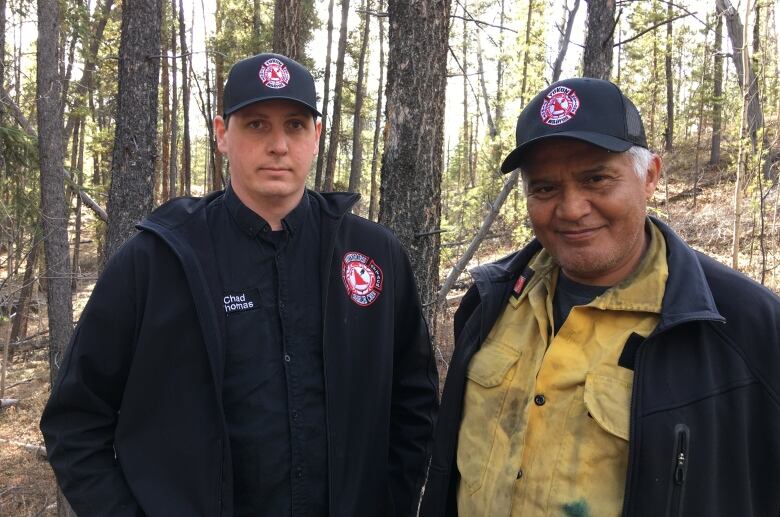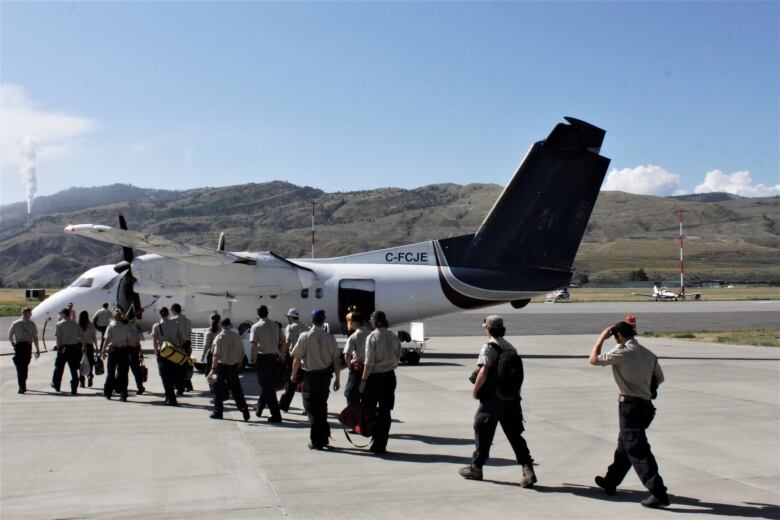Wildfires and a pandemic: Yukon crews prepare for uncertain season
Yukon's fire season has officially begun, and COVID-19 means crews are preparing differently

The COVID-19 pandemic has thrown a wrench into some preparations for Yukon's wildfire season, and added some additional uncertainty.
Yukon First Nations Wildfire an organization that trains and hires Yukoners to be initial attack crew firefighters has pushed back its annual "Beat the Heat" training and recruitment camp into May, and organizers are looking for different ways to deliver the training.
"We always figured that Beat the Heat boot camp is the foundation of Yukon First Nations Wildfire, because that's the spot where we could bring everybody in, and you could have experienced people trained, new people trained, and just sort of shake off the cobwebs from the winter," said Chad Thomas, team leader with the organization.
"Now we're having to switch from a great program like that to an online training program."
Earlier this year, the organizationwas awarded more than $1 million in new funding, as an Arctic Inspiration Prize winner.

Thomas said this year's spring training won't just be online there will be some field training as well, but in smaller groups to ensure there's safe physical distancing.
Once the season is underway, Thomas says they'll look at ways to schedule people so that there are fewer people at the fire base at any given time.
And he said his crews will be ready to to step up for things other than fires, as well.
"We have reached out to the government and let them know that if they need our services for anything else, such as roadblocks ... or,we do have quite a few staff who are trained medically whatever we can do to help during a situation like this, we want to help," he said, referring to Yukon's state of emergency due to COVID-19.
Fire season has begun
Yukon had a busy wildfire season last year.In all, there were 177 wildfires across the territory, burning about 2,800 square kilometres.
The head of Yukon Wildland Fire Management called it one of the most "complex and challenging" seasons in more than a decade, and the government significantly overshot its budget for firefighting.
Mike Fancie, spokesperson for Yukon Wildland Fire Management, said it's too soon to say what this season might look like.
The fire season has officially begun in Yukon, meaning there are government crews in place and ready to respond but muchof the territory is still under a thick blanket of snow.
Fancie said the COVID-19 pandemic means they're rethinking how they do things, in particular, how they transport crews around.

"Ithink we'll probably see a lot more wiping down of the helicopters, and taking ownership of the trucks ... weknow once we get out to the fire lines, it's not that difficult to practise social distancing," he said.
"It is more difficult when you think about the travel between the fire centre or the fire camp, and the fire line. And that's what we're going to be focusing a lot of efforts on."
Another consideration is whether Yukon willneed to bring in crews from outside the territoryif and whenthings get busy.
Fancie said any decisions will be made in consultation with the chief medical officerif the pandemic is ongoing.
"A lot can change in a couple [of] months, a lot can change in a couple [of] weeks, a lot can change in a couple of days, as we've seen."
With files from Christine Genier












_(720p).jpg)


 OFFICIAL HD MUSIC VIDEO.jpg)
.jpg)



























































































